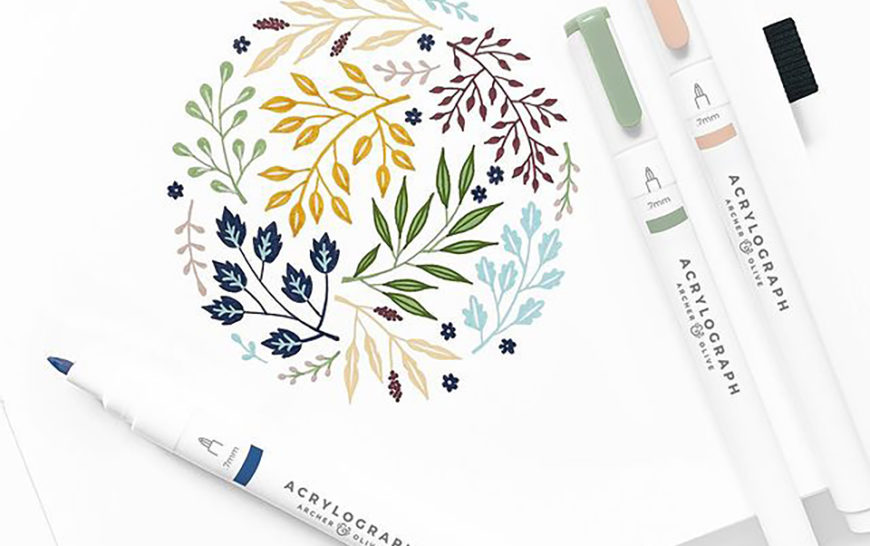
Journal practice can work wonders for mental clarity and mindfulness. From tracking your feelings, anxiety triggers and your menstrual cycle to savouring life’s simple pleasures, expressive writing can be a great tool for connecting with your truth and expressing daily gratitude and positivity.
If you’re new to journaling or you’ve lost your way with your practice, here’s some useful tips for getting into the habit of writing for yourself.
Make it a regular ritual
Experiment with different times and settings and see what feels most valuable to you.
Carve out a regular slice of time for your journaling and be consistent with it, whether that be a short burst first thing in the morning whilst savouring your cup of coffee, last thing at night before you hit the pillow or a big journal session once a week. Prioritising your writing practice just like any other form of self-care, will set you up for success and encourage you to check in with yourself each day. Experiment with different times and settings and see what feels most valuable to you.
Lean into your writing
Much like heading out for a power walk or blitzing the house top to bottom when you’re feeling stressed, turning to you journal in your hour of need comes highly recommended. Granting yourself the space to sit and write can help you make sense of your worries and process everything from arguments to five-year plans and creative pursuits.
Journal freely
These pages are yours, so whenever you feel a pressure to censor and self-edit your thoughts and feelings, breathe and let go.
You don’t need to make poetry with your words, it just needs to be honest and judgement-free. These pages are yours, so whenever you feel a pressure to censor and self-edit your thoughts and feelings, breathe and let go. Successful journaling practice starts when you write without inhibition. Make it your very own beautiful mess and write for your eyes only. It doesn’t need to be polished and ready to publish.
Take pride in your tools
Journaling can be as fancy pants or as basic as you want to make it, the point is it should be a pleasure. Like drinking a glass of water after a long walk or lighting a candle to mark the end of your working day, it should be a welcoming and meditative ritual and if that means investing in a beautiful notebook you can treasure for years to come and colour coded pens for every mood, so be it.
Set your intention
If you find the thought of staring at a blank page each day a little too daunting, use writing prompts or templates to set the intention of your practice and give your writing structure and purpose. I.e. What three things am I grateful for today? Or, what inspired me today? What colour was my day, today?
It’s ok if you don’t feel like writing…
On days when journaling feels like one painfully mammoth task, feel free to rest and revisit another day.
Whilst it’s good to be consistent with your journaling, sometimes certain life events mean we can’t always confront our feelings or our truth with such head-on acceptance. Sometimes, writing and working through our difficulties is healing and other times it’s just not the right time. On days when journaling feels like one painfully mammoth task, feel free to rest and revisit another day.
Experiment with different journal forms
There is a myriad of ways to journal. For some, putting to pen to paper is all part of the experience. The texture of the paper and the sound of the pen scribbling across the page is all part of a sensory and tactile practice but for others, focusing on handwriting just exacerbates the pressure to get it perfectly neat. Tune into what feels good for you! If you’re visual, maybe a doodle journal with a few sentences is a more suitable way to express your creativity and if you’re always on the go, maybe a digital journal is the way forward. There is no wrong way to journal, so do it your way.
If in doubt, focus on gratitude
On the days when the writing has all dried up, turn your focus to the ultimate mood-booster: gratitude journaling. It’ll help your words flow, promote positivity and give you that much needed motivation to carry on with your practice. Zero in on a handful of things you appreciate that day and really bask in the emotion of gratitude.
Switch up your environment
Your setting matters so if you’re feeling uninspired, try writing somewhere new or take your journal outside and get the senses going. Forest bathing and journaling sounds like a 10/10 self-care practice to us.
Make a writing playlist
Some of us need complete silence whilst others prefer the ambient noise of a café or a favourite playlist, if that’s you, block out the rest of the world and set the mood for your journaling session with a gentle soothing playlist. That way it’s just you, your journal and your writerly bops.









